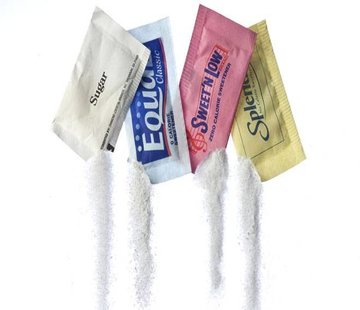
Debunked


We as a race have an inherent preference for sweet-tasting foods and beverages. This affinity coupled with unlimited access to and over-consumption of large portions is plaguing countries all over with obesity. As such it was only natural for a ‘healthier’ alternative to be borne and so was the case of artificial sweeteners in 1900.
Presently, widely used and deemed safe artificial sweeteners include saccharin, aspartame, acesulfame K or AceK, Sucralose and Neotame. Whilst artificial sweeteners do, without a doubt, have a place in modern diets, it is important to not overdue it. Because “sugar-free” isn’t the same as healthy. Loaded with sweeteners and fats to maintain taste, these food items are ticking time bombs of obesity and disease.
The key, as always, is moderation in usage. Further, I recommend and endorse the use natural alternative sweeteners, mainly fruit, to sweeten beverages and foods. Ingredients like vanilla pods and cinnamon too are known to add a hint of sweetness and honey along with being nature’s answer to sweet packs a whopping nutritional punch. Exercise caution with honey though because it’s molecular composition is that of sugar.
In a nutshell, use artificial sweeteners instead sparingly, stick to wholesome and unprocessed foods, keep your sugar intake in general less than 20g a day and maintain a physically active lifestyle. It’s foolproof!

Juggling many roles from physician to writer to pilates instructor to Marketing-PR executive, Dr. Daamini is constantly pushed and inspired to get creative on how to encompass a Retreat into her daily life.
View Profile